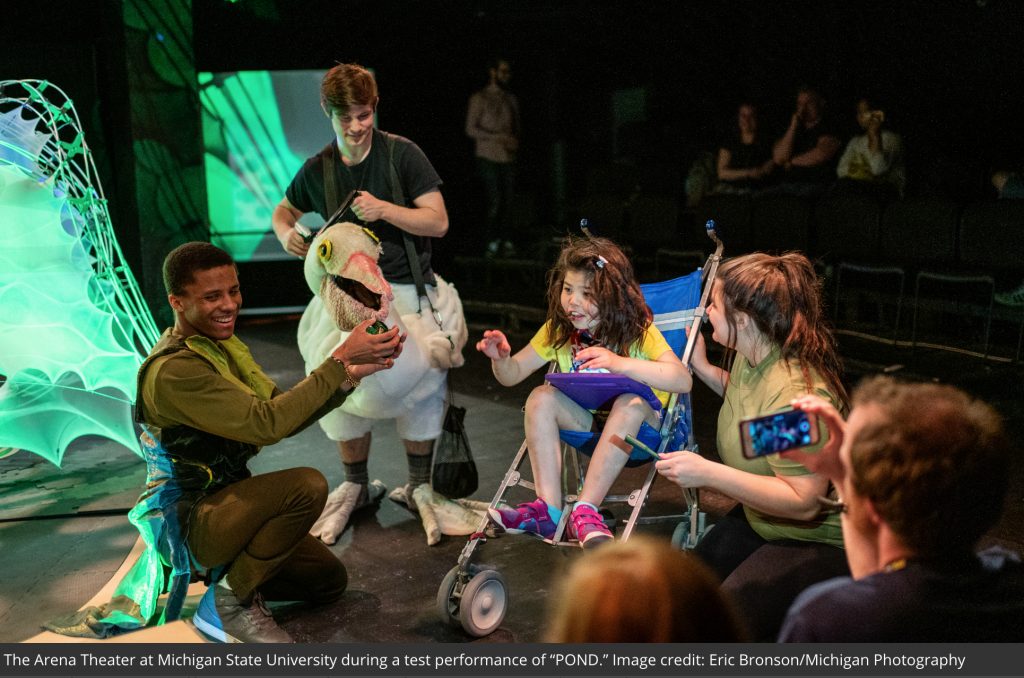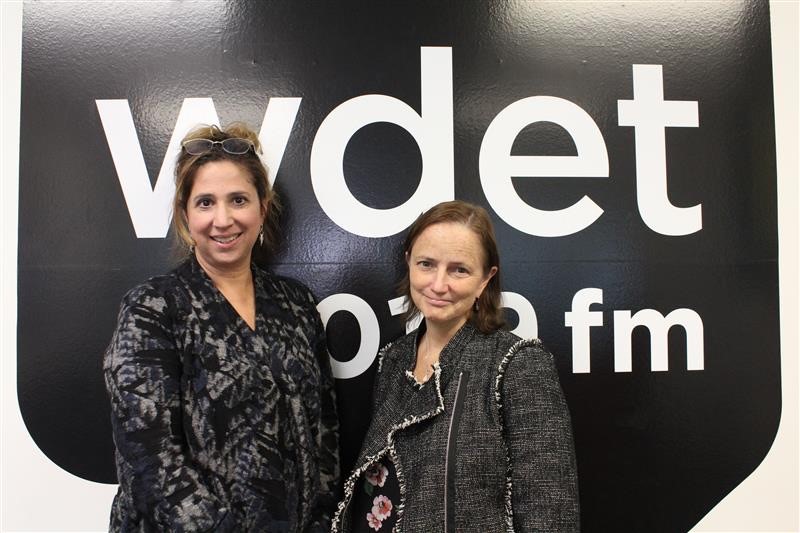Your Guide to Sensory-Friendly Spaces for Autistic Kids in Metro Detroit
Autism is a neurological disorder that has impact on individuals senses and social skills. Here’s how Metro Detroit artists are making spaces inclusive.

In 2018, Dionne O’Dell attended The Big Umbrella Festival in New York, a festival that welcomed artists who shared an interest in creating participatory theater spaces that catered to children on the autism spectrum.
It was during this gathering of the minds at the Lincoln Center that O’Dell, a playwright and faculty member in Michigan State University’s theatre department, met Sean Ahlquist, an architect and associate professor of Architecture at the University of Michigan, who was creating social-sensory architecture.
“I see some of the strongest, loudest voices coming from parents who are reaching out and saying, ‘This is what we need for our child,’” – Frankie Groce, The Judson Center
Combining O’Dell’s children’s theater background and Ahlquist’s architecture skills, the pair teamed up to create POND, a sensory-friendly production currently being workshopped at MSU.
Click on the player above to hear CultureShift interview Frankie Groce and Dionne O’Dell. See a guide for sensory-friendly resources below.
Sean’s set “has big architectural structures that have fabric and textiles stretched over them and the fabric has sensors on it,” O’Dell describes. “If a child were to press on the fabric with a certain amount of pressure, animations will appear. For POND, you press on part of the structure and fish will swim around your hand.”

The production is among the growing number of sensory-friendly spaces around the world, enabling children on the spectrum and their families to enjoy activities such as theatre and the movies – places that can often be overwhelming with sound, lighting and stillness – without concern about triggering their sensory vulnerabilities.
“Typically when an individual has some sensory-deficits, they could be receiving information from their senses in such a way that either they’re over-sensitive; so maybe it’s the sound that is too much for them,” says Frankie Groce, director of Autism Connections with The Judson Center.
“It’s definitely happening in pockets. We just have to continue pushing for advocacy,” – Dionne O’Dell, Michigan State University
“I’ve worked with kiddos who may get upset [because] the lights are too bright or flicking or textures that they’re craving. We tend to filter things out naturally and they may not be able to, so with sensory-friendly places you really need to take those items into account and be conducive to a successful event for these kids.”
Groce and O’Dell acknowledge that Southeastern Michigan is “lagging” in the growth of sensory-accommodating environments, but have hope that increased awareness will drive wider improvement.
“It’s definitely happening in pockets,” O’Dell says. “We just have to continue pushing for advocacy.”
“I see some of the strongest, loudest voices coming from parents who are reaching out and saying, ‘This is what we need for our child,’” Groce adds. “It means the world to these children to have these opportunities.”
Looking for Resources? Here’s a Guide to Sensory-Friendly Spaces
Movies
The Judson Center partners with Emagine Theater for two sensory-friendly movies a month where children diagnosed with autism can walk around the theater and there’s no pressure to sit still. They can also make sound and noise.
Why it’s sensory-friendly: The room is brightened from your typical experience and the sound is reduced.
Bonus: Bring your own snacks to fit your kids tastes.
Holidays at the mall
Macomb Mall has sensory-friendly Santa Cares and Bunny Cares visits for children
Why it’s sensory-friendly: During holiday season, malls tends to be packed with lights and people, so these sensory-friendly times are a private event before mall hours.
Thanks to CultureShift caller Apple Wick for the tip!
Museums
Autism Alliance of Michigan is partnering with different museums to have sensory-friendly days.
Indoor play
Detroit Kid City partnered with Centria Healthcare Autism to offer an indoor play care for children with autism.
More resources
Autism Speaks is the largest advocacy organization dedicated to promoting solutions for individuals on the autism spectrum and their families.
Be Like Buddy is a database of sensory-friendly activities and spaces locally and nationally. This resource is run by a family of different learners and also builds community through their blog.
The Michigan Alliance for Cultural Accessibility (MACA) is a collective of professionals collaborating to enhance the accessibility of Southeast Michigan’s cultural institutions for people will all abilities.
Send additional recommendations for local sensory-friendly spaces to digitaleditor@wdet.org.
